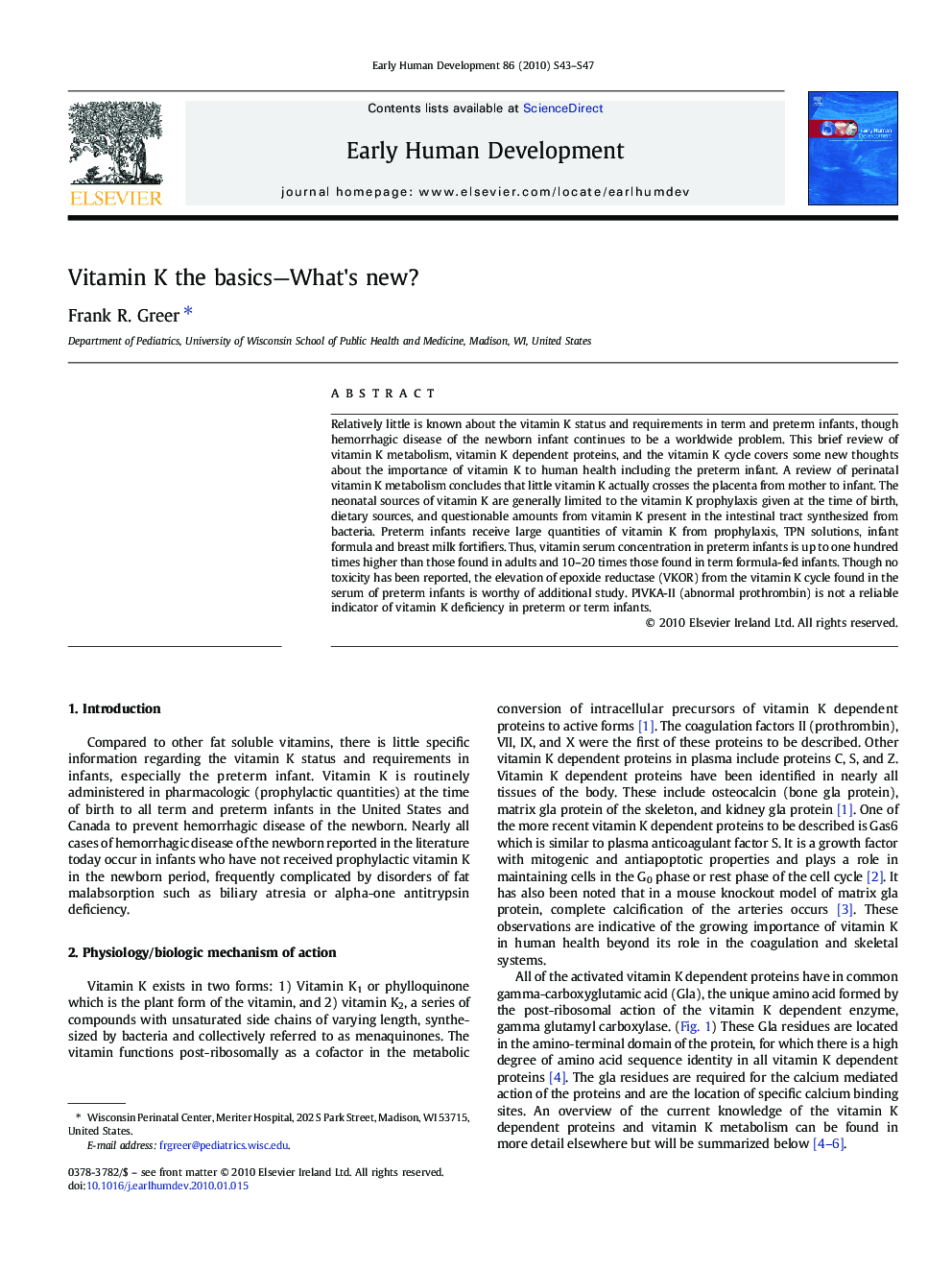| Article ID | Journal | Published Year | Pages | File Type |
|---|---|---|---|---|
| 3916970 | Early Human Development | 2010 | 5 Pages |
Relatively little is known about the vitamin K status and requirements in term and preterm infants, though hemorrhagic disease of the newborn infant continues to be a worldwide problem. This brief review of vitamin K metabolism, vitamin K dependent proteins, and the vitamin K cycle covers some new thoughts about the importance of vitamin K to human health including the preterm infant. A review of perinatal vitamin K metabolism concludes that little vitamin K actually crosses the placenta from mother to infant. The neonatal sources of vitamin K are generally limited to the vitamin K prophylaxis given at the time of birth, dietary sources, and questionable amounts from vitamin K present in the intestinal tract synthesized from bacteria. Preterm infants receive large quantities of vitamin K from prophylaxis, TPN solutions, infant formula and breast milk fortifiers. Thus, vitamin serum concentration in preterm infants is up to one hundred times higher than those found in adults and 10–20 times those found in term formula-fed infants. Though no toxicity has been reported, the elevation of epoxide reductase (VKOR) from the vitamin K cycle found in the serum of preterm infants is worthy of additional study. PIVKA-II (abnormal prothrombin) is not a reliable indicator of vitamin K deficiency in preterm or term infants.
